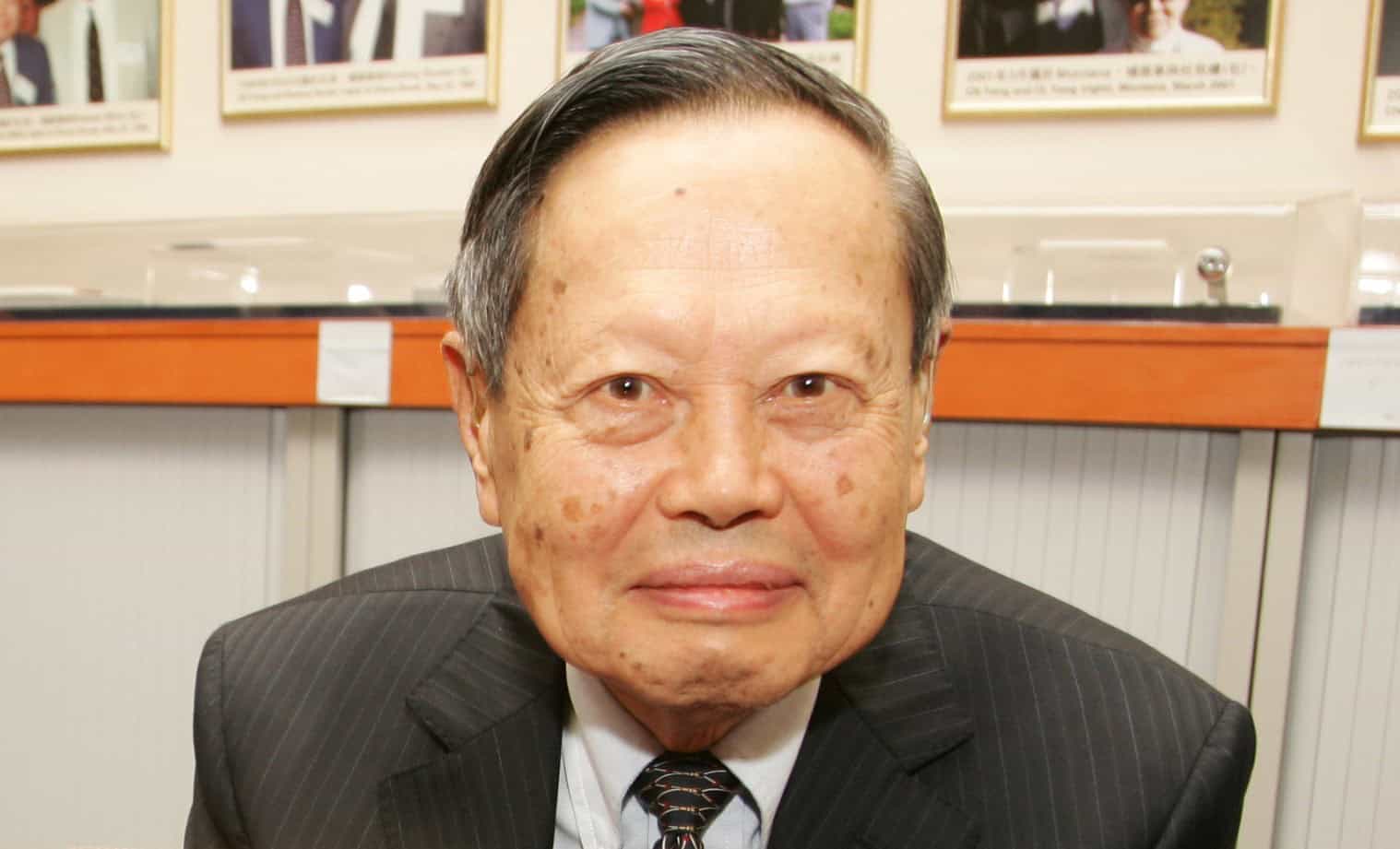Science
Renowned Physicist Chen-Ning Yang Passes Away at 103

Chinese physicist and Nobel laureate Chen-Ning Yang passed away on October 18, 2023, at the age of 103. Yang was a pivotal figure in theoretical physics, renowned for his groundbreaking contributions that reshaped our understanding of fundamental forces.
Born on September 22, 1922, in Hefei, China, Yang completed his Bachelor of Science degree at the National Southwest Associated University in Kunming in 1942. He pursued further studies, earning a Master’s degree in statistical physics from Tsinghua University in 1944. In 1945, he moved to the United States as part of a government-sponsored initiative, eventually attaining his PhD at the University of Chicago in 1948 under the mentorship of Edward Teller.
Yang’s career took a significant turn in 1949 when he joined the Institute for Advanced Study in Princeton, New Jersey. There, he collaborated with Robert Mills to develop the Yang-Mills theory, a fundamental component of the Standard Model of particle physics. This theory laid the groundwork for understanding how particles interact through the weak force, a crucial area of study in physics.
In the early 1950s, Yang and his colleague Tsung-Dao Lee, who passed away in 2022, tackled a perplexing issue in particle physics involving the decay of tau and theta particles. Their research revealed that parity, a property describing how particles behave under mirror reflection, was not conserved in weak interactions. This insight led to their joint Nobel Prize in Physics in 1957, an honor they received for their revolutionary findings.
Yang’s contributions extended beyond his Nobel-winning work. He played a significant role in advancing both science and education in China. In 1965, he became the first director of the newly founded Institute for Theoretical Physics at Stony Brook University, which is now named the C.N. Yang Institute for Theoretical Physics. His dedication to education is reflected in his establishment of the Committee on Educational Exchange with China, which has facilitated over 100 Chinese scholars studying in the U.S.
In 1997, Yang returned to Beijing and took on the role of honorary director at the Centre for Advanced Study at Tsinghua University. He later retired from Stony Brook in 1999 to become a professor at Tsinghua. Though he became a U.S. citizen during his time abroad, he renounced his citizenship in 2015.
Yang was also vocal about contemporary scientific initiatives, including his skepticism regarding the proposed Circular Electron Positron Collider (CEPC). He questioned the appropriateness of such a massive project in a developing country, emphasizing the need to prioritize pressing issues like economic development and environmental protection. “I am not against the future of high-energy physics, but the timing is really bad for China to build such a super collider,” Yang remarked in 2016, noting the uncertain benefits for the Chinese populace.
Throughout his illustrious career, Yang received numerous accolades, including the U.S. National Medal of Science in 1986 and the Einstein Medal in 1995. Stony Brook University President Andrea Goldsmith remarked on Yang’s legacy, stating, “The world has lost one of the most influential physicists of the modern era.” His impact on physics and the many students and colleagues he inspired will resonate for generations to come.
-

 Health3 months ago
Health3 months agoNeurologist Warns Excessive Use of Supplements Can Harm Brain
-

 Health3 months ago
Health3 months agoFiona Phillips’ Husband Shares Heartfelt Update on Her Alzheimer’s Journey
-

 Science2 months ago
Science2 months agoBrian Cox Addresses Claims of Alien Probe in 3I/ATLAS Discovery
-

 Science2 months ago
Science2 months agoNASA Investigates Unusual Comet 3I/ATLAS; New Findings Emerge
-

 Science1 month ago
Science1 month agoScientists Examine 3I/ATLAS: Alien Artifact or Cosmic Oddity?
-

 Entertainment5 months ago
Entertainment5 months agoKerry Katona Discusses Future Baby Plans and Brian McFadden’s Wedding
-

 Science1 month ago
Science1 month agoNASA Investigates Speedy Object 3I/ATLAS, Sparking Speculation
-

 Entertainment4 months ago
Entertainment4 months agoEmmerdale Faces Tension as Dylan and April’s Lives Hang in the Balance
-

 World3 months ago
World3 months agoCole Palmer’s Cryptic Message to Kobbie Mainoo Following Loan Talks
-

 Science1 month ago
Science1 month agoNASA Scientists Explore Origins of 3I/ATLAS, a Fast-Moving Visitor
-

 Entertainment2 months ago
Entertainment2 months agoLewis Cope Addresses Accusations of Dance Training Advantage
-

 Entertainment3 months ago
Entertainment3 months agoMajor Cast Changes at Coronation Street: Exits and Returns in 2025









